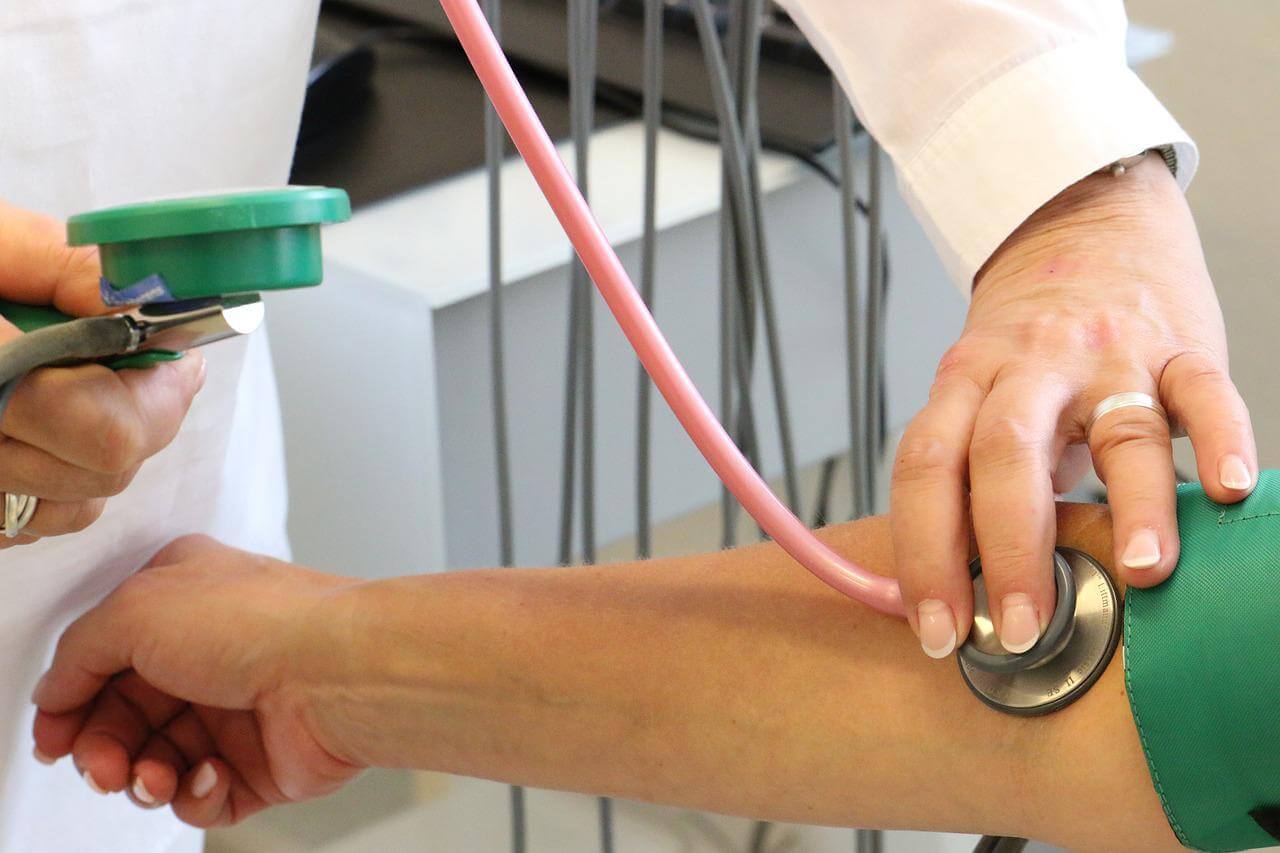Welcome to an exciting and enlightening read on CNS Certification!
This article discusses the importance of the Clinical Nurse Specialist Certification, the organizations offering it, and its requirements.
At the end of this piece, you’ll know how to become a Certified Clinical Nurse Specialist.
The article will shed light on the following:
- Introduction to CNS Credentials
- Organizations Issuing CNS Medical Credentials
- Clinical Nurse Specialist Certification Requirements
- The Importance of Certification Programs
Let’s get started!
Overview of Clinical Nurse Specialist Certification

Clinical Nurse Specialists (CNSs) are graduate-level Healthcare professionals inclined to consultancy, research, and education.
They’re patient advocates and mentors to the Nursing staff in their specialty area.
They initiate Healthcare policies that ensure positive changes in their workplace.
Due to the sensitivity of CNS roles, their education doesn’t end with a master’s or doctoral degree; they also need relevant certifications for seamless performance.

Being a Certified Clinical Nurse Specialist is the hallmark of expertise in your specialty area.
It also demonstrates competency and clinical understanding.
Your state Board of Nursing may also require intending Advanced Practice Registered Nurses (APRNs) to complete certification programs before licensure.
Registered Nurses should check their state’s licensing requirements for Advanced Practice Nurses to know how to become a CNS.
Organizations Offering CNS Certifications

Before enrolling in a Nursing program, confirm its accreditation status to ensure you’re not wasting your time and resources.
The two accrediting bodies for Nursing Certification Programs are the Commission on Collegiate Nursing Education (CCNE) and the Accreditation Commission for Education in Nursing (ACEN).
If either of these agencies doesn’t accredit a Nursing Education Program, you shouldn’t put in for them.
If you want to know how to get CNS Certifications with ease, stick to the organizations discussed below:
The American Nurses Credentialing Center (ANCC)
The ANCC offers numerous CNS Programs, including:
Certificate Name: Clinical Nurse Specialist Core Certification
Credential Awarded: CNS-BC
The ANCC has retired the CNS Certification examination for this credential; hence, it’s only available for renewal.
How to Renew CNS Certification
To renew this certification, you must apply for renewal a year before the expiration of your credential.
Members of the American Nurses Association (ANA) pay $275 for renewal, members of the National Association of Clinical Nurse Specialists (NACNS) pay $295, while non-members pay $375.
Before commencing an online renewal process, you must enter and save evidence of professional development, such as Continuing Education and Clinical Practice.
Eligibility for Certification Renewal
- Pay the renewal charges
- Hold an active and unencumbered RN license within the US
- Complete 75 clinical hours, including 25 hours of advanced Pharmacology for Clinical Nurse Specialists and Nurse Practitioners
However, if you want to reactive your ACNS BC credential, you’ll pay an additional $125 reactivation fee.
You shouldn’t allow your certificate to expire for more than two years because you won’t be eligible for recertification.
Other certifications that the American Nurses Credentialing Center has retired include Adult Psychiatric-Mental Health, Public Community Health, Adult Health, Pediatric Health, and Advanced Diabetes Management.
In other words, the organization doesn’t conduct CNS Certification exams for the new certification of the specialty areas mentioned above.
It also suggests that intending CNSs can’t use any of these programs to earn a CNS license.
So, which Clinical Nurse Specialist education can you go for?
Adult-Gerontology Clinical Nurse Specialist (AGCNS-BC)
The ANCC awards the AGCNS-BC to deserving Healthcare Providers.
ANA members pay $295 for this certification, while non-members pay $395.
GAPNA and NACNS members pay $340.
Adult-Gerontology CNS Requirements and Eligibility
Intending APRNs who want to earn the Adult-Gerontology credential must satisfy the following conditions:
- Possess an active and unencumbered RN license
- Have a Master of Science in Nursing (MSN) or Doctor of Nursing Practice (DNP) degree in CNS Nursing
- Record 500 supervised hours of clinical experience in a CNS position
- Take advanced Health Assessment, Pharmacology, and Pathophysiology courses
You must complete your coursework in any of the courses mentioned above to prove your expertise in ACNS Nursing.
If you meet all these Clinical Nurse Specialist requirements and pass the examination, you’re a step away from licensure.
The American Association of Critical-Care Nurses (AACN)
The AACN offers three relevant national certifications: Acute Care Clinical Nurse Specialist-Pediatric (ACCNS-P); Acute Care Clinical Nurse Specialist-Neonatal (ACCNS-N); and Acute Care Clinical Nurse Specialist-Adult-Gerontology (ACCNA-AG).
AACN members pay $255 for these credentials, while non-members pay $360.

Hence, the AACN credentials are ideal for those who want to focus on Pediatrics, Oncology, Adult-Gerontology, and Advanced Neonatal Nursing.
After your master’s degree, enroll in any of these certification programs to know how to serve your patient population better.
Eligibility Requirements
There are different requirements for each specialty area; hence, you should check the AACN website to know the specific requirements for your preferred specialization.
For instance, the Adult-Gerontology CNS has the following requirements:
- Possess a current and unencumbered RN license
- Hold an MSN in Clinical Nurse Specialist education from a recognized institution
- Record 500 clinical hours in adult-gerontology CNS position
If you want to earn a certification in Neonatal CNS, you also need a current RN license, earn an MSN in a related field, and show evidence of clinical experience.
Since you can’t boycott the certification process in your CNS licensure journey, ensure you get the best out of it, especially the clinical experience, because the Wellness or Healthcare Sector is practical-driven.
Certification Renewal

You shouldn’t go to sleep after earning your credential because you need to renew it every 5 years.
It’s a means of reaffirming and rededicating yourself to continuing education and excellence in Nursing.
Certification renewal also allows you to stay updated about trends and happenings in the industry and how to improve patient outcomes.
It’s the best time for you to sharpen your skills in grey areas and further demonstrate your expertise in your specialty.
The process of renewing your certification with the American Association of Critical-Care Nurses is straightforward:
- You must have an unencumbered and active RN or APRN license
- Fulfill the number of practice or contact hours in the CNS role
- Have adequate continuing education points and pass the relevant test
If you’re active in the field, all these requirements are your daily experiences.
However, the organization might adjust its renewal requirements anytime, so you should stay updated on its activities.
Furthermore, you can explore the possibilities of other certifying agencies but ensure they offer nationally-recognized credentials.
For example, the Oncology Nursing Certification Corporation offers nationally accredited certification programs.
Conclusion

Discussing how to become a Clinical Nurse Specialist isn’t complete without a discourse on relevant certifications.
Thus, we’ve undertaken a giant step in this article to complete the cycle.
After your master’s degree, focus on acquiring the certification to make your licensure seamless.
Apart from enrolling in a nationally-recognized CNS Program, ensure that the certifying body hasn’t rested the credential.
We also emphasized the need to renew your credentials before their expiration not to put a dent in your professional practice.
More so, the renewal process allows you to learn new things and grasp major happenings within the sector.
FAQs

What is a CNS BC?
The Clinical Nurse Specialist—Board Certified (CNS-BC) is a certification issued by the ANCC to Nurse Specialists. It’s the core credential for CNSs. However, the ANCC doesn’t issue a new CNS-BC credential again; they’ve retired it. Hence, it’s only available for renewal for existing holders.
What is a CNS designation?
A Clinical Nurse Specialist is an APRN with an MSN or DNP in a preferred specialty.
Clinical Nurses demonstrate expertise in diagnosing, assessing, and treating patients. Most Clinical Nurses are research-oriented. They formulate and implement policies that endanger positive change in healthcare settings.
Is a CNS an Advanced Practice Nurse?
Yes, Clinical Nurse Specialist is one of the four types of Advanced Practice Nurses. Others include Nurse Practitioners, Certified Nurse-Midwives, and Certified Registered Nurse Anesthetists. CNS is an APRN Specialist who focuses on Advocacy, Excellent Patient Care, Teaching, and Research.
How do you qualify for CNS?
Hold a current and unencumbered RN license, acquire an MSN or DNP in a CNS Educational Program, and show evidence of 500 contact hours in a CNS role. You must also have unique coursework in Advanced Health Assessment, Pharmacology, and Pathophysiology.
Why are Specialist Nurses important?
CNSs work round the clock to initiate policies that will ensure the success of a healthcare team. They reduce unnecessary hospital admissions to help Nursing staff concentrate on other patients. They help and enlighten patients on the best disease management practices.
How do I study for the CNS Exam?
Follow the study guide of the examination body and draw a personal timetable.
Choose a study pattern that befits you and eases assimilation. Watch videos and study the course curriculum thoroughly. Familiarize yourself with practice tests and ask questions where necessary.
Can CNS write prescriptions?
A CNS must obtain prescriptive authority from the relevant agency before prescribing medicine independently. Before being given the authority, you should have demonstrated your expertise in treating and managing acute illnesses over time. Hence, few Clinical Nurses can write prescriptions.
How do I become a CNS in Ireland?
You must have at least 5 years of experience in Clinical Nursing, including 2 years of experience in a specialization. You must have extensive experience.
What do you need to be a CNS?
Clinical Nurse Specialist requirements differ by state and certifying body. Generally, you must have a bachelor’s degree from an accredited institution and a license. You should also have evidence of work experience in a relevant field and pursue a master’s or doctoral degree program.









